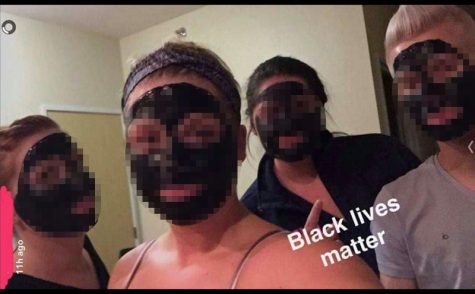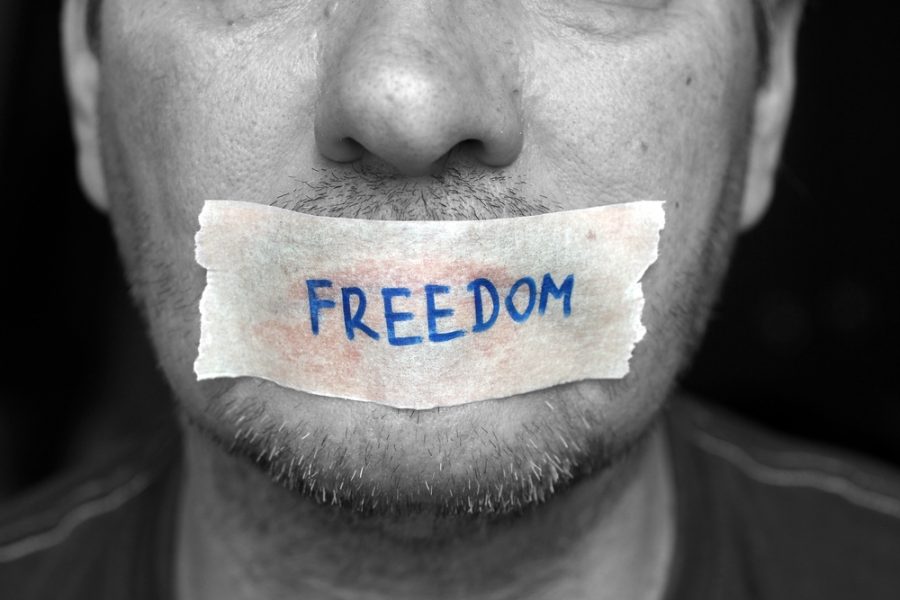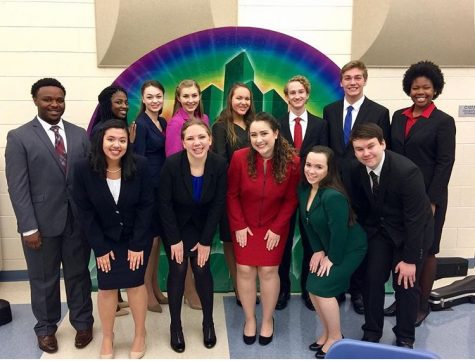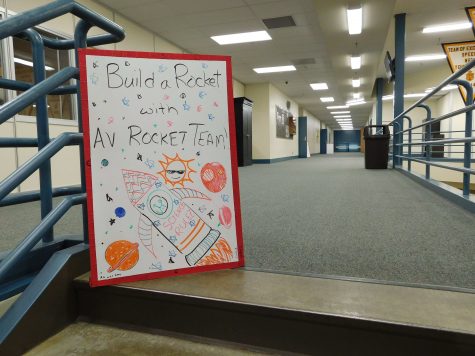Are We Free to Speak Our Minds?
They say if you don’t have anything nice to tell somebody, you might as well not say it at all. This quote teaches us from an early age to at least try and be kind to all. But in the ever-connected age of social media, something has changed.
Recently, the University of North Dakota has been under fire for letting two groups of students off the hook for posting racist pictures over a social media site. The first was an incident that had involved three girls who locked their black roommate outside of their dorm and took a photo captioned, ‘Locked the Black ___Out.’ And the second was another group of four students who Snapchatted a picture of themselves covered in a black charcoal mask, known as ‘blackface,’ with the caption, ‘Black Lives Matter.’

UND Snapchats
Afterwards, the UND Police Department and Office of Student Rights opened an investigation against the school for the racially targeted posts, and Mark Kennedy, the president of UND, spoke out: “As part of the conversation with student leaders, we talked about the concept of zero tolerance.”
Kennedy continued, “While I appreciate the desire for such a policy, it is unachievable under the First Amendment to the U.S. Constitution.” He agreed to give free speech to the kids, rather than protect students from these hate crimes.
There is no denying that allowing a voice to be heard is empowering, but when it comes to offensive words being shouted, the right and wrong become unclear.
“Students and teachers are free to speak their minds on public school grounds,” according to the Center for Public Education. “The big idea behind free speech is simply this: Students and teachers are free to reveal their views unless there is a compelling reason to stop it. School officials cannot arbitrarily pick and choose the speech it will allow.”
So students are able to say what they want to say. But we should make it our goal to use it to our advantage. We need to use our power speak up but not to use that same power for offensive posts.
The two UND groups of students are a not a positive representation of what the First Amendment can give to students. Our rights give us the chance to speak our minds, protest, and make change with our voices. But it is important to not forget that our words can come with consequences.







